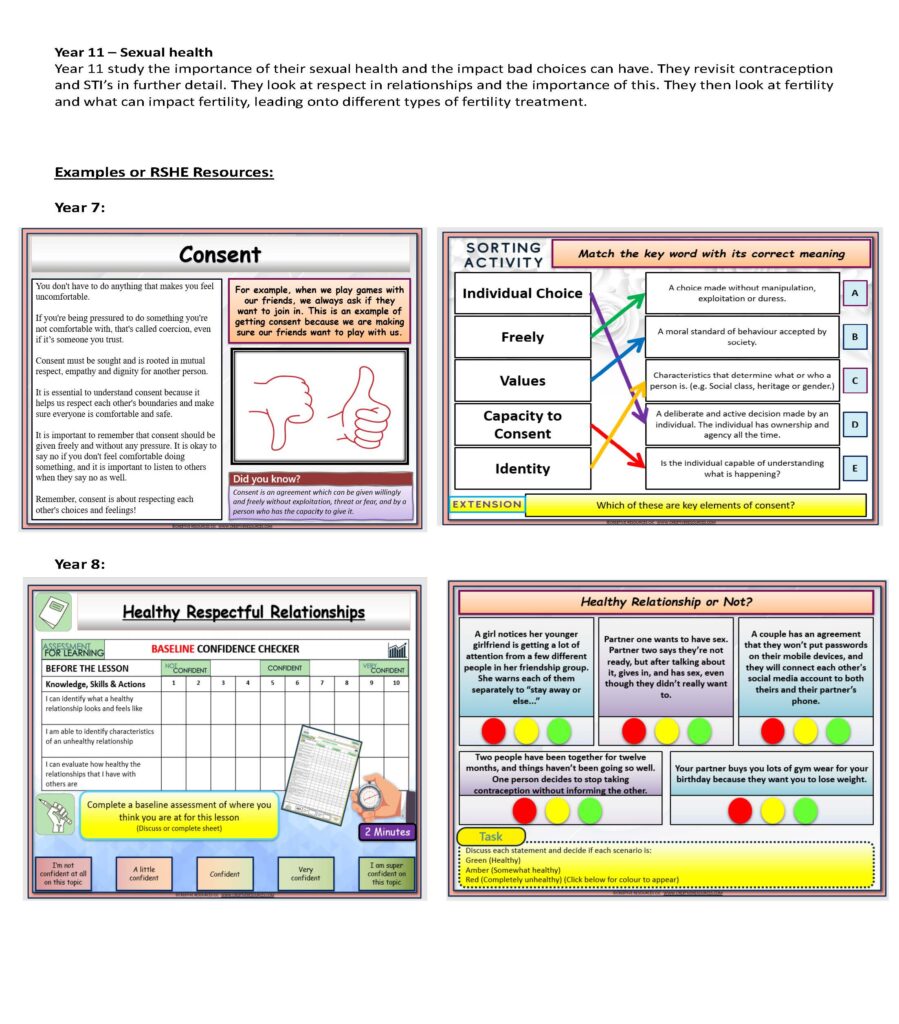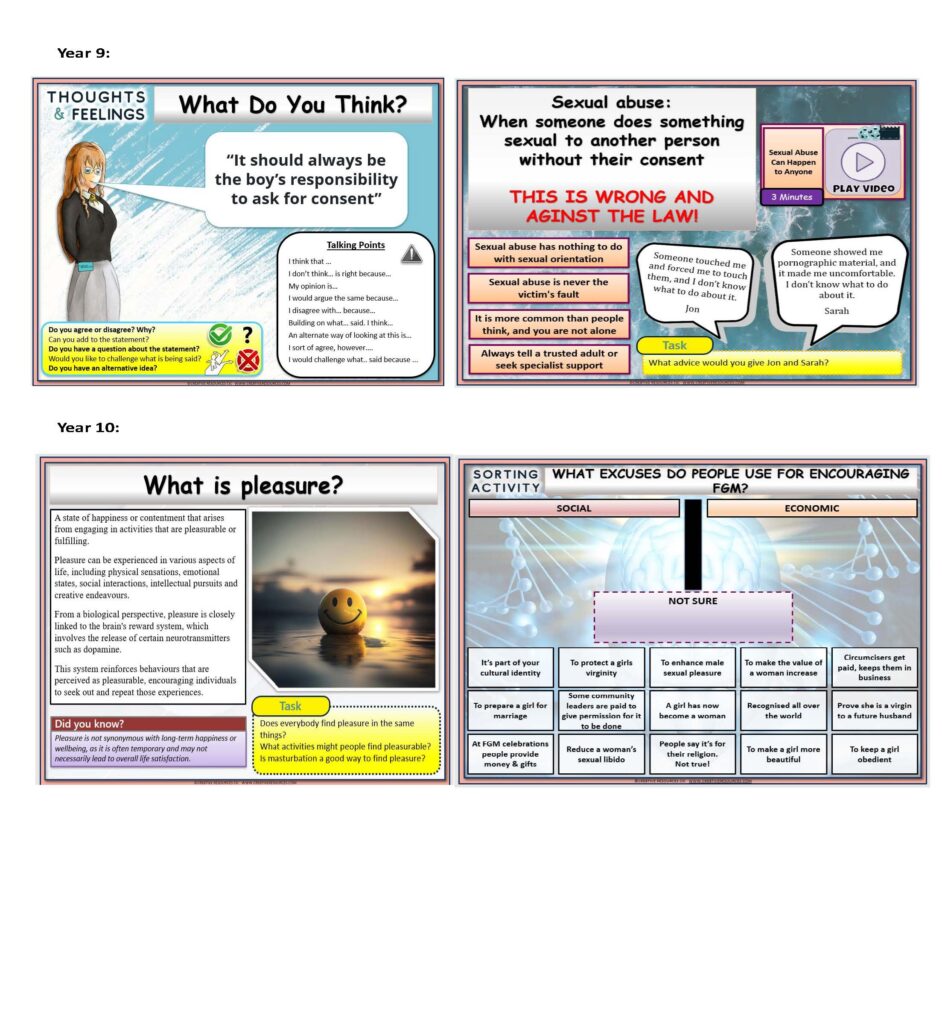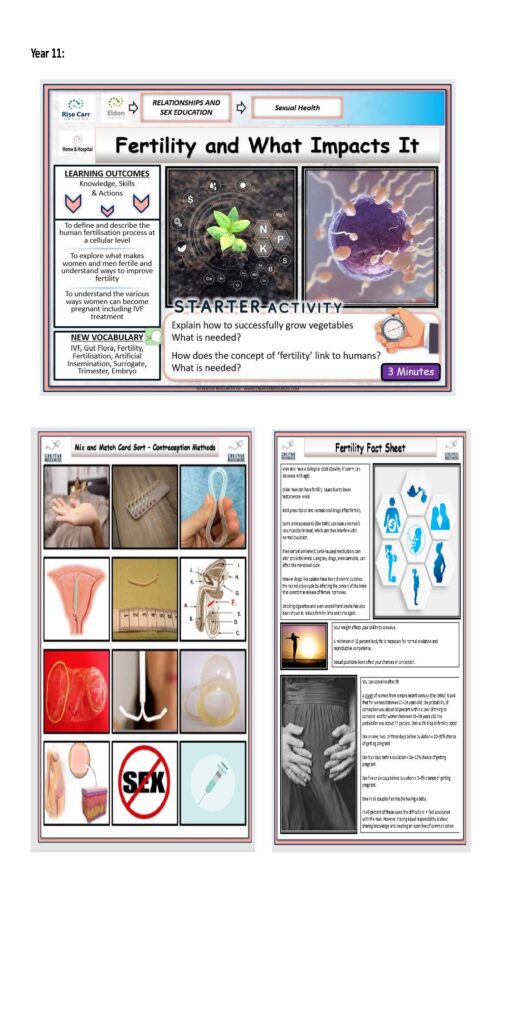Relationships, Sex and Health Education (RSHE) Overview
We believe RSHE is an important aspect of the PSHE programme which makes a significant contribution to the development of personal skills needed by students to establish and maintain positive, healthy
relationships. RSHE enables young people to make responsible and well-informed decisions about their
health and wellbeing. It supports students in forming positive beliefs and attitudes about sex and sexuality, relationships and feelings.
RSHE is taught in a spiral curriculum, meaning that topics are repeated as they progress up the year groups adding further detail to the subject for an age appropriate understanding. Resources for teaching are taken from the PSHE Association and our bespoke curriculum we have developed with Cre8tive Resources.
We have attached some examples of teaching resources from Yr 7 – Yr 11 at the end of this document;
however, should you wish to come into school to look or discuss any of the resources/content further, please contact PSHE Lead Kirsty Dunn k.dunn@risecarrcollege.org.uk and we can arrange for you to do so.
The content that is studied is summarised below and follows the statutory Health Education Guidance for
RSHE 2020.
Year 7 – Friendships, respect and relationships
This unit looks at consent and boundaries and evaluates why personal space and boundaries are important when growing up. It then looks at the wide range of relationships that young people have and the qualities of good friendships. The unit then finishes looking at how to manage these relationships and looking at pressures and influences within different types of relationships.
Year 8 – Identity, relationships and sex education
This unit starts with an introduction to RSHE looking at what makes a healthy relationships. It deals with conflict that can happen within a relationship. Student will look at the difference between sex and gender and the harmful prejudices and stereotypes that can be associated with these. All students learn about the menstrual cycle. The unit finished with a brief look at what is love and an introduction to the concept of contraception.
Year 9 – Sex the law and Consent unit
Year 9 start looking at the law in relation to sexual consent and FGM. It then looks at delaying sexual activity and the pressures that can be associated with this. It covers the positive and negative reasons to have sex and explores the consequences of making a relationship sexual. Then to finish students, debate the sexualisation of the media and the impact this is having on teens.
Year 9 – Contraception and STI’s
In this part of RSHE, Year 9 study STI’s in detail. They then look at different forms of contraception alongside how they work and the pros and cons of each type. The realities of contraception and the link with pregnancy and STI’s are also studied. The laws and legal frameworks linked to sexual harassment and stalking are explored and knowing the difference between flirting and sexual harassment. The unit finishes looking at HIV and AIDS in more detail.
Year 10 – Exploring Relationships and Sex Education
This unit looks at the legal, emotional and social consequences of sending sexts. This is then explored further with pornography looking at what is and is not legal and identifying the differences between what is seen in pornography and real life. It explores how common access to pornographic material can affect attitudes and beliefs towards sex, relationships and self. Sexual violence is covered looking at assault and rape. The unit progresses onto pleasure and looks at masturbation and the risk associated with different sexual activities.
Year 11 – Sexual health
Year 11 study the importance of their sexual health and the impact bad choices can have. They revisit contraception and STI’s in further detail. They look at respect in relationships and the importance of this. They then look at fertility and what can impact fertility, leading onto different types of fertility treatment.




